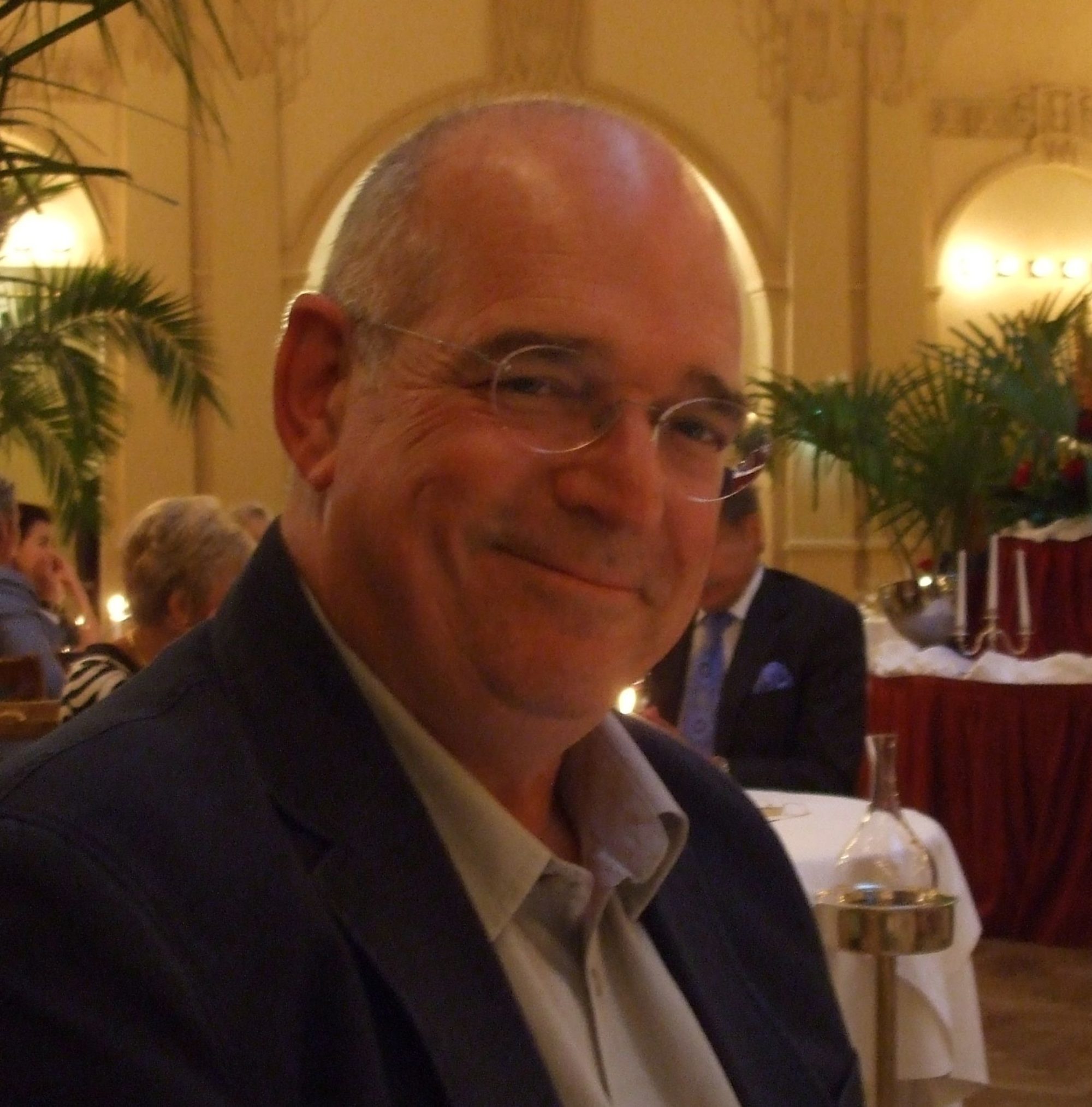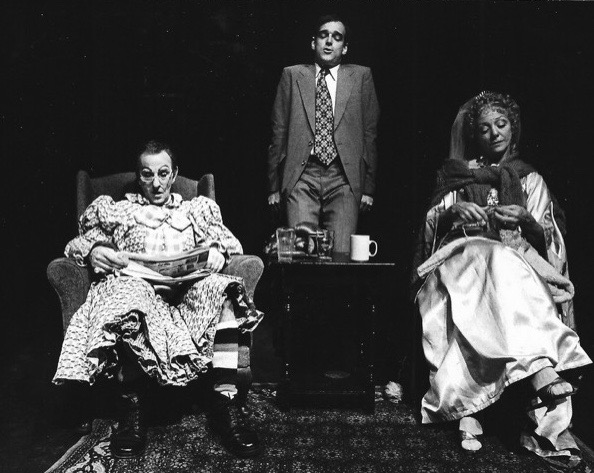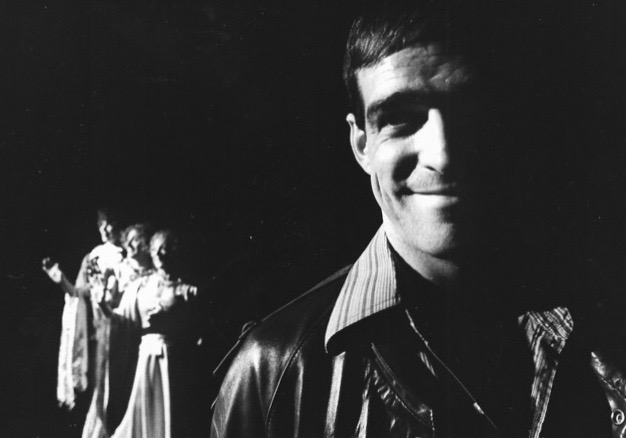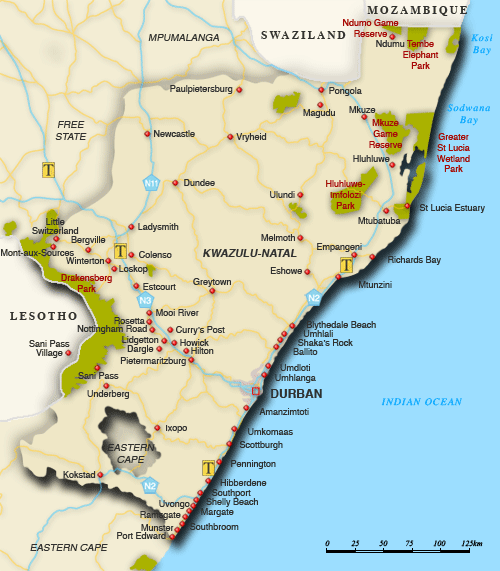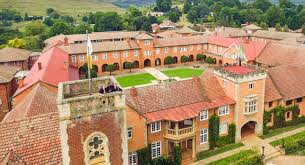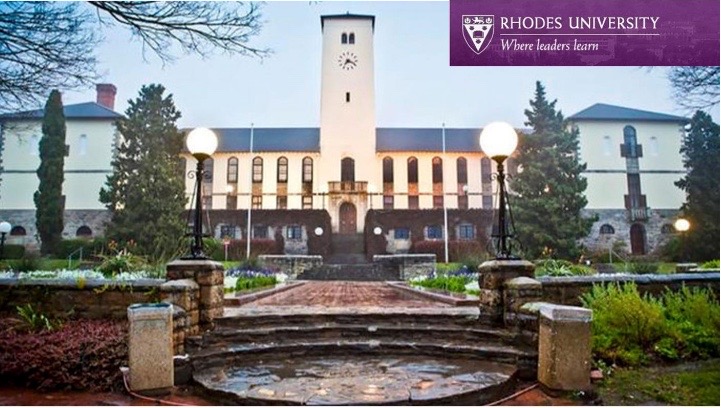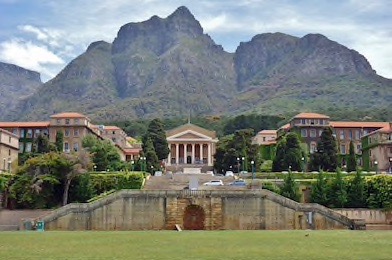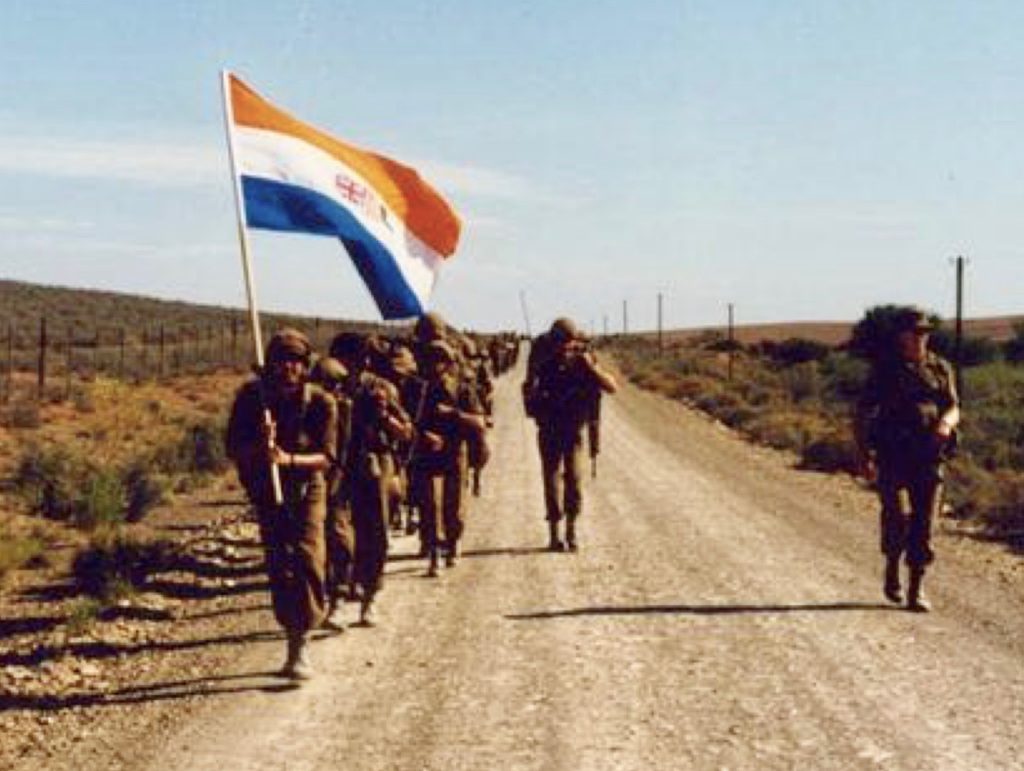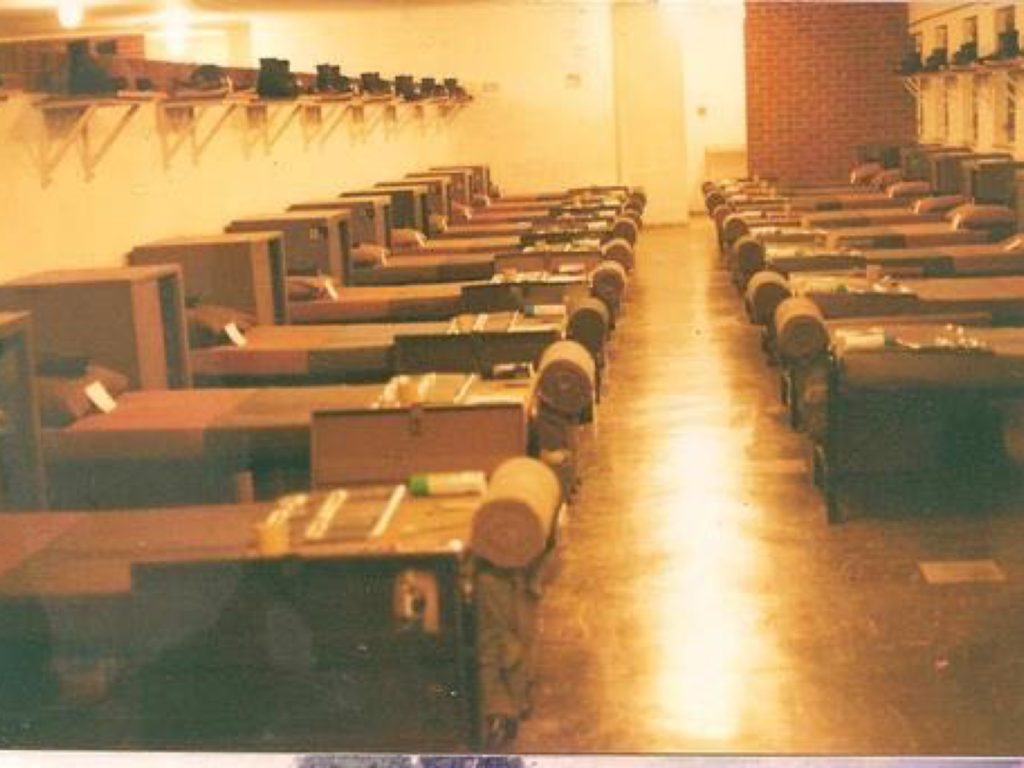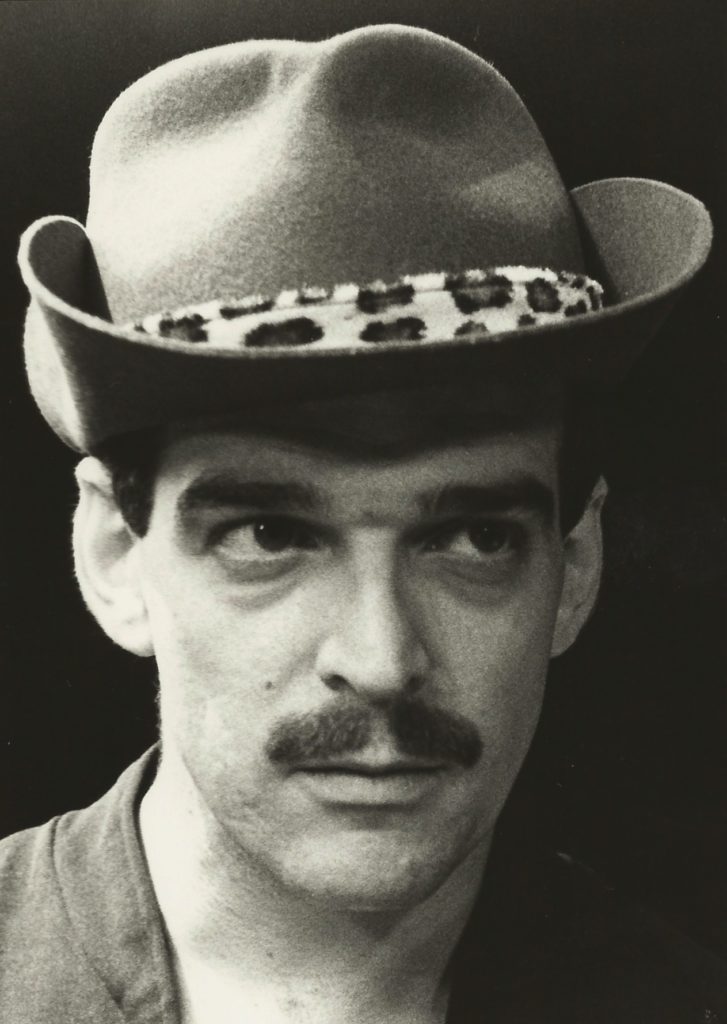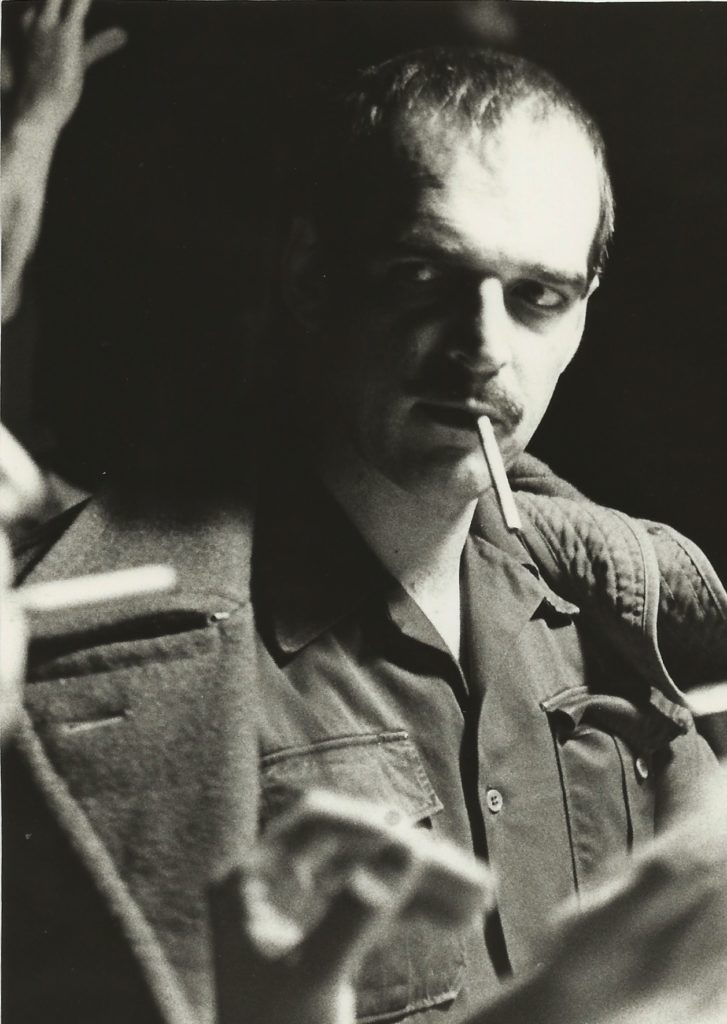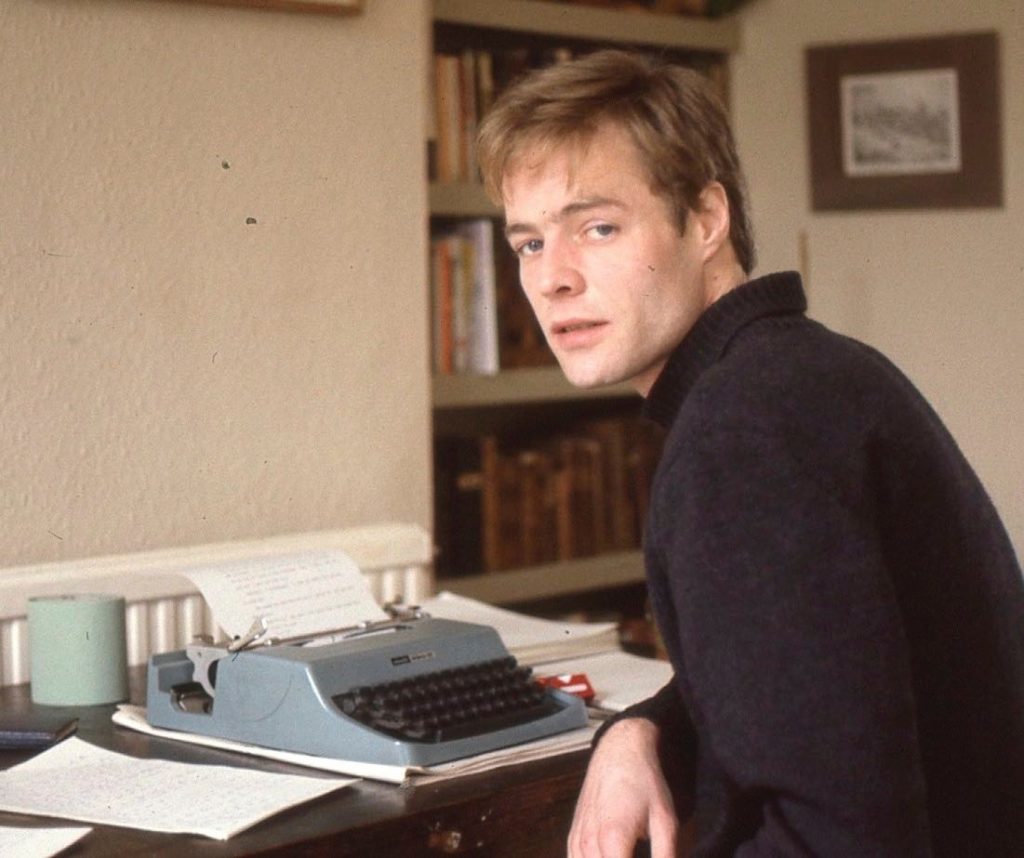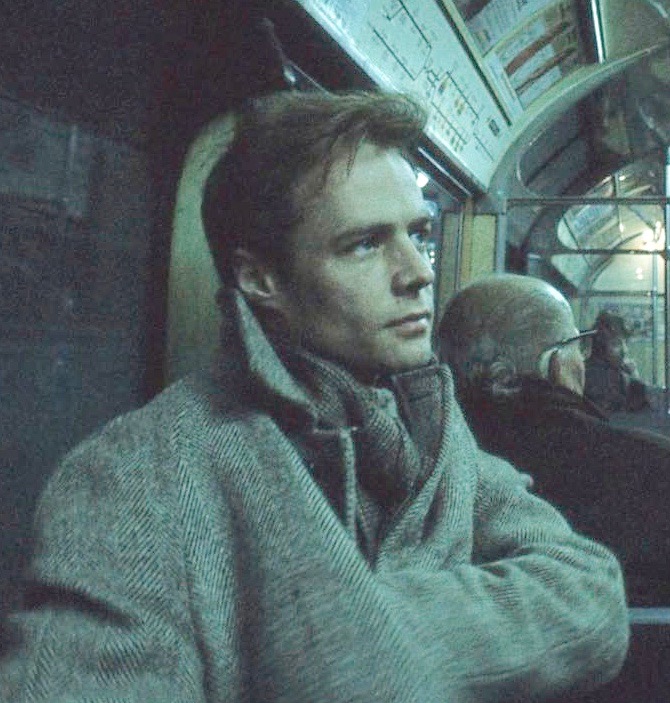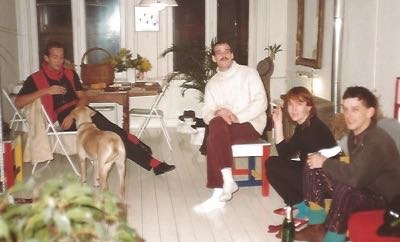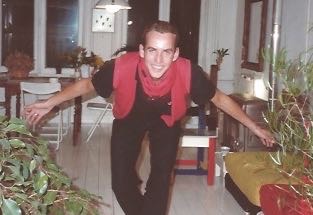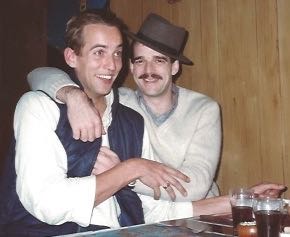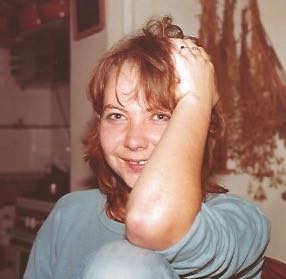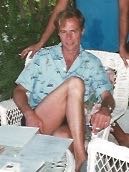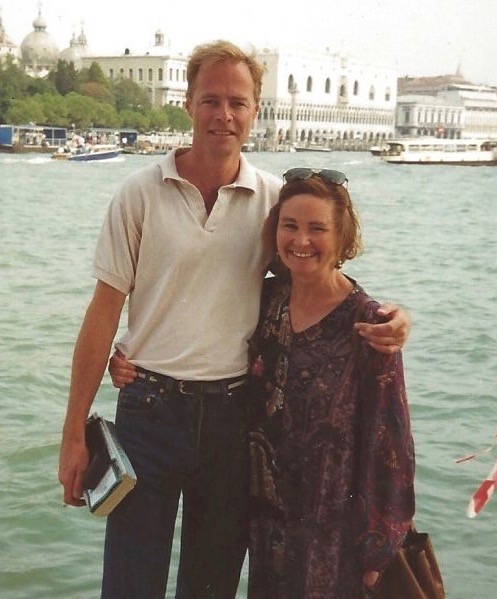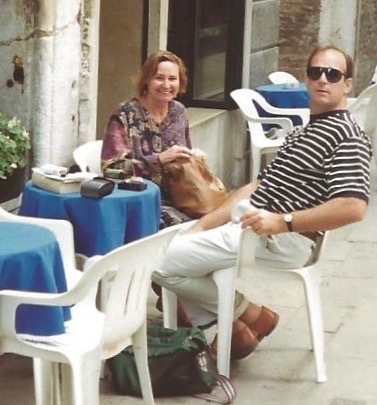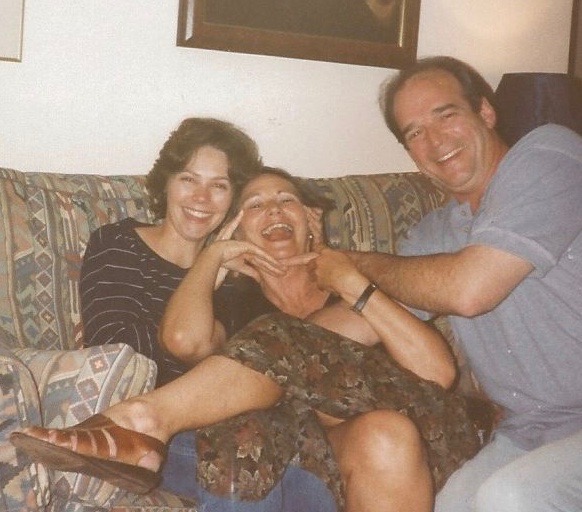I. HAPPENSTANCE : The Meeting.
We are often asked how we met:
I was performing on the Fringe in 1983 in Stewart Permutt’s first professional play, When I Grow Too Old To Scream, at the New End in Hampstead and the Sir Richard Steele Pub on Haverstock Hill. The play takes place in the greenroom of a tatty, pier-end theatre where some desperate actors are playing pantomime and reminiscing in the way only actors can. It was a poignant piece and well received even transferring briefly to the Dominion in Tottenham Court Road.
by
Stewart Permutt
with
Annie Windsor, Barbara Young and Nicholas Amer
Roland Curram was directing and we were on stage at the Sir Richard Steele receiving notes after a preview performance. One of the props was a back copy of The Stage which I was idly leafing through when I came across this in the smalls:
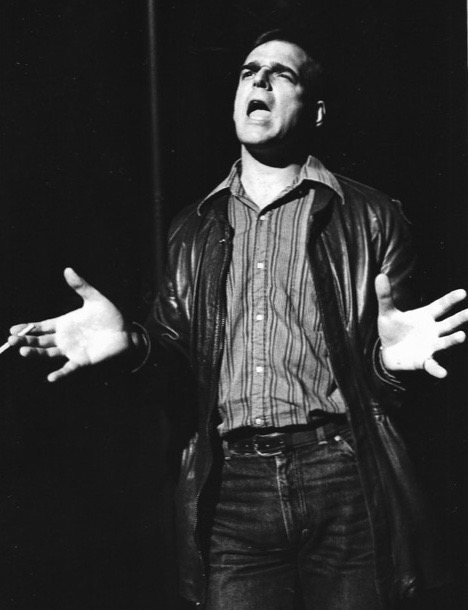
AUDITIONS
SOMEWHERE ON THE BORDER
HET STICHTING THEKWINI AMSTERDAM
Contact Anthony Akerman
Tel: +31 20 123456
That was all.
I was immediately alerted by the title, Somewhere on the Border, for this was the signature expression used in a programme broadcast in South Africa called Forces Favourites, to men in uniform serving “somewhere on the border” in the counter-insurgency operations I had once been part of in another life, being undertaken by the SADF on the Namibia-Angola Border and the Caprivi Strip. This had to be a play about that and surely there might be a part in it for me?
Thus we desperately clutched at any passing straw!

It was a back-copy of The Stage and I thought whimsically of following it up. It was far too late to write to Holland and anyway there was no address. It would entail an expensive phone call to the Netherlands; why waste my time, my money; the excuses popped into my head.
I remember after the notes, in the pub with a pint, mentioning this to the others and they said, “Oh go on, just call the number, it can’t do any harm, its only Holland (sic) they won’t mind if you are late…..!”
So I did.
I called the number when I got back to Dolphin Square, where I lived in those days.
Anthony Akerman of The Stage advertisement picked up. I introduced myself, apologised for the late hour, explained I had just seen his ad in a back copy of The Stage, on the stage, in the make believe greenroom in our play and asked if I was too late to be considered for any auditions that he might be holding?
No, auditions were going ahead the following week in London but he was looking for specific types, preferably genuine South Africans. He wanted only young men who could get away with a believable South African accent, had a knowledge of Afrikaans and preferably a feel for the whole South African experience. I did not sound suitable at all.
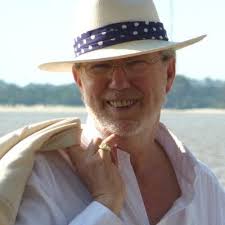
“Where are you from?” he asked.
I explained that I was born and bred in South Africa, had served in the army “on the border” and would surely be suitable? There followed a short silence, I think of disbelief.
He then auditioned me for the audition!
Anthony Akerman today.
“You know that several hundred actors have applied for these auditions and most of them have tried to pretend that they are South African. Forgive me if I run a short test? You sound English?”
I thought of the hours of expensive coaching at LAMDA to achieve RP and disguise my origins. How ironic.
“Not at all. Of course. Go for it,” I said.
“Where were you born……….?”
To cut a long story short it turned out that Anthony, like me, had lived in Kloof-Hillcrest, in the smallest of the South African provinces, Natal, as it was then called; had been at the same school, Michaelhouse, but being a few years older, did not recollect me or my name though of course by now I remembered who he was.

Kloof-Hillcrest is about twenty clicks to the north west of Durban and Michaelhouse is near Howick where, famously, Nelson Mandela was captured in 1962.
The coincidence was astonishing and he immediately agreed to add me to the list of auditionees for the following week. He said he would contact his agent in London who was organising the audition venue and alert him to expect me to collect a script from his office at some agreed time. He gave me the phone number of Cori Films, the address of the audition and a time; and his agent’s name – Tony Peake.
I called Tony at Cori Films, introduced myself and asked for a suitable time to collect the script at his office in Mayfair and duly presented myself there.
A tall, blond, willowy, extremely handsome man appeared at reception wearing a brand new Panama hat which I thought stylish but somewhat eccentric.
This was Tony Peake about whom I knew nothing nor had any inkling of the earthquake to come, the utterly new and unexpected direction my life would take.
And that is how we met.
II. COINCIDENCE : The Waiting (Sitzkrieg)
The audition was a success made more perfect by meeting Friends I had not seen in a while, Allan Leas being the most prominent and later, his wife Nana, whom I’d last seen at the Young Vic four years earlier at a performance of PARADISE IS CLOSING DOWN, a Pieter Dirk Uys piece that was playing there with other Friends, notably Naomi Buch, Barbara Kinghorn, and Helen Bourne.
So off I went to the Netherlands, to Amsterdam, to appear in Anthony’s new play SOMEWHERE ON THE BORDER.
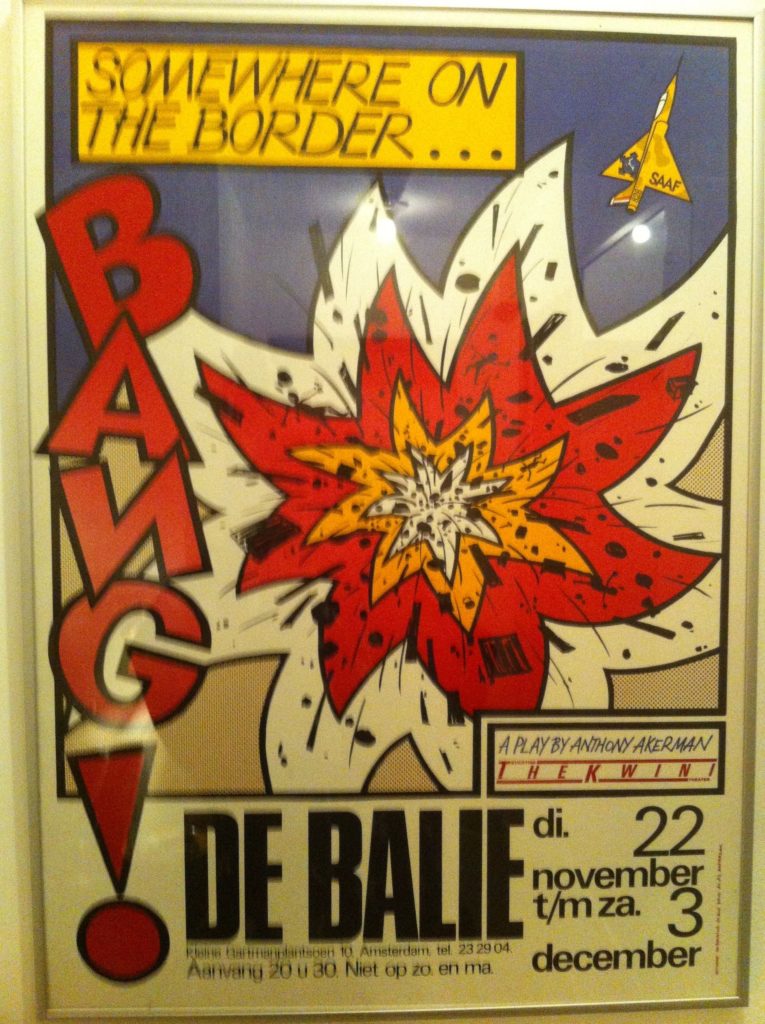
In the meantime I had discovered that the coincidences surrounding our similar South African backgrounds had made it extraordinary that Tony and I had never met before. We had friends in common; our respective parents had emigrated from Britain with that great post-war exodus in the late 40’s; we were both baby-boomers – just. He was born in Johannesburg, I was born in Cape Town; we attended similar schools : his in the Transvaal and mine in Natal – all private; and then went to Universities in Grahamstown, Rhodes (heretofore) for him and Cape Town, UCT for me.
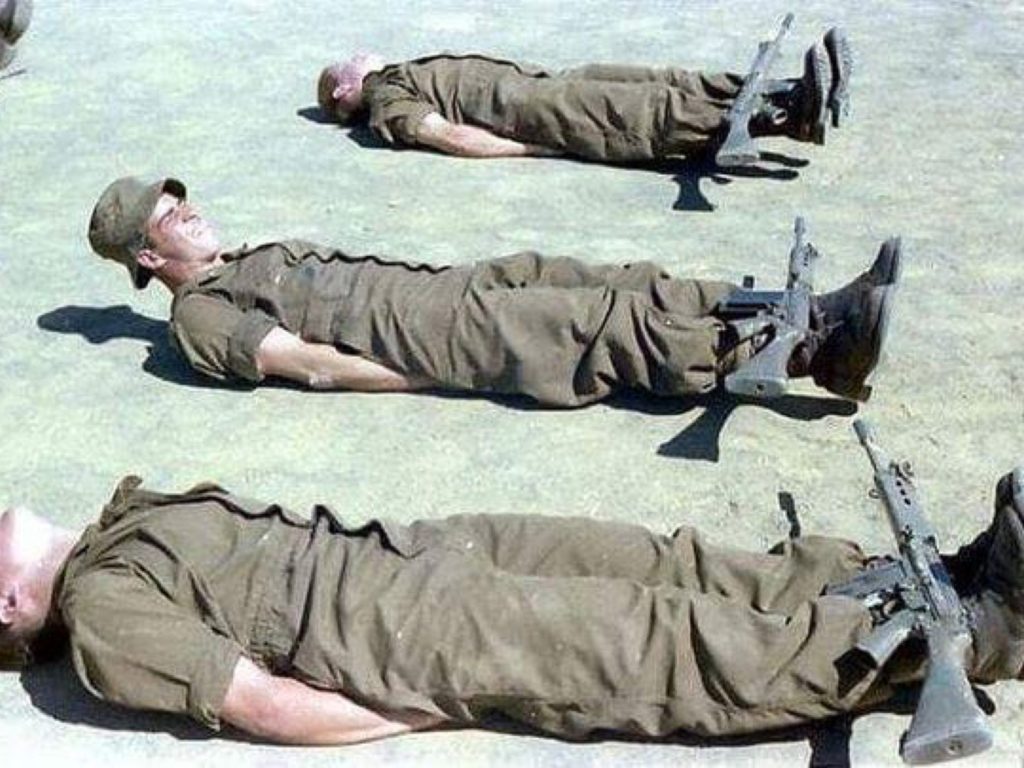
He had not been conscripted into the SADF for the obligatory post-school training, lucky man, but I had. He came to Britain in 1972 with a wife and an infant son, Irene and Zac. I arrived in London having shredded my South African Passport, on a one-way ticket in 1979. We were both escaping the Apartheid regime which we loathed and, in my case, an endless succession of military call-ups over nine years culminating in actual action along the Angola/Zambia borders on two tours.
All this I found out after I’d left Tony in his office with his Panama hat, clutching my copy of the play, from friends who had known him and didn’t know I didn’t!
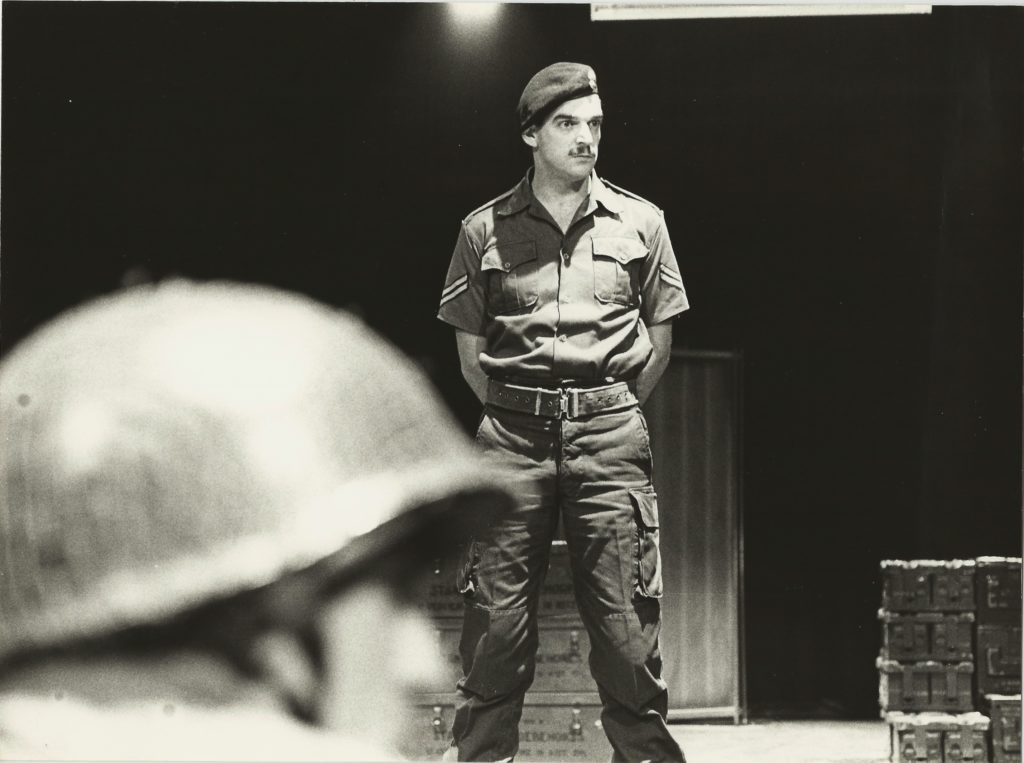
But we did not get together for two more years. I went off to Holland for almost five months to rehearse, open and tour SOMEWHERE ON THE BORDER. It turned out to be a most incredible experience, without doubt the best Ensemble involvement I have ever had in my entire acting career.
Not only was it an excellent piece, professionally produced and properly paid but it acted as a kind of catharsis for me, a liberation from ugly experiences in my own army training and from the guilt engendered by Apartheid.
The Committee on South African War Resistance (COSAWR) was founded in 1978 by the merging of two groups of South African war resisters active in Britain. It functioned as a self-help organization for South African military refugees. It also worked to raise the issue of militarism in South Africa and conducted research into the South African military structure and resistance.
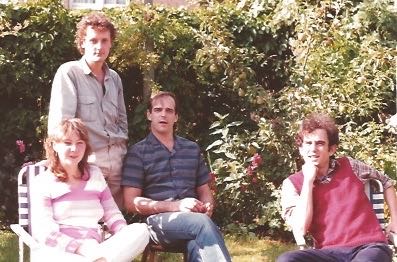
Allan Leas was a founder member of this organisation and also in the Company, playing Campbell, and it was no coincidence that the subject of the play was directly related to these matters.
Allan Leas on the right with Anky Mager, our dramaturg and producer with her husband Paul van Os.
Some of the other actors had come to Europe claiming refuge from the SA military call-up and had received in Holland a far more sympathetic hearing than in Britain, then under Mrs Thatcher who, after all, regarded the ANC and SWAPO as terrorist organisations and would hardly be sympathetic to white conscripts claiming refuge in England.
By this time Tony Peake had joined London Management a portmanteau company comprising agents and representatives for actors, writers, directors, dancers and others. He continued to pursue his writing, in private, on his Olivetti.
Tony came to Holland during this time, to see how his client, Anthony, and his project were progressing. That he was a divorcee, with two children and was trailing an exotic, French girlfriend underlined the message I had already been given by friends that though he might be a blond, willowy, lovely man, he was not part of that gay firmament that currently held me in thrall. We were polite at these meetings but distant.
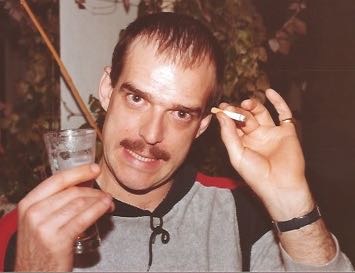
Holland had a transformative effect on me in many areas. I was not the same person when I reluctantly returned to England after a short skiing trip with Dutch friends to Mayrhofen. I wish I had a ‘before’ picture. The one here is an ‘after’ one!
These pictures are from my Shoebox Files.
When I returned to England in January 1984 I went to work on Ross Devenish’s BBC TV production of BLEAK HOUSE and, as a cash-in-hand fill-in, helped run the Riverside Studio Box Office where suddenly one morning Tony Peake’s head popped over the parapet looking for tickets for something or other, and we chatted and exchanged phone numbers, he was looking for a bridge four and asked if I played the game. I do and so did he.
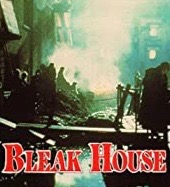
A long silence eventually broken by several telephone calls asking if I’d make up a bridge four but by then I was playing Fritz Eppler, the lion tamer and circus stunt man, in the BBC’s TV series about the exotic vet, David Taylor, ONE BY ONE and had no time for bridge.
Then suddenly in September 1984 I was asked to accompany Friend Lois to Tony’s 33rd Birthday party. She and Tony had been friends since Rhodes University days. I was happy to oblige. Apparently Tony had asked that she bring me but when that day dawned, Lois was ill and couldn’t come. I knew no-one else at the party so tried to cry off but she prevailed and feeling foolish, it was a ‘black & white’ fancy dress set up, I hied me to Tufnell Park, to the home of Alistair Beaton whom I’d never met and didn’t know. He answered the door dressed in white rompers and black tie.
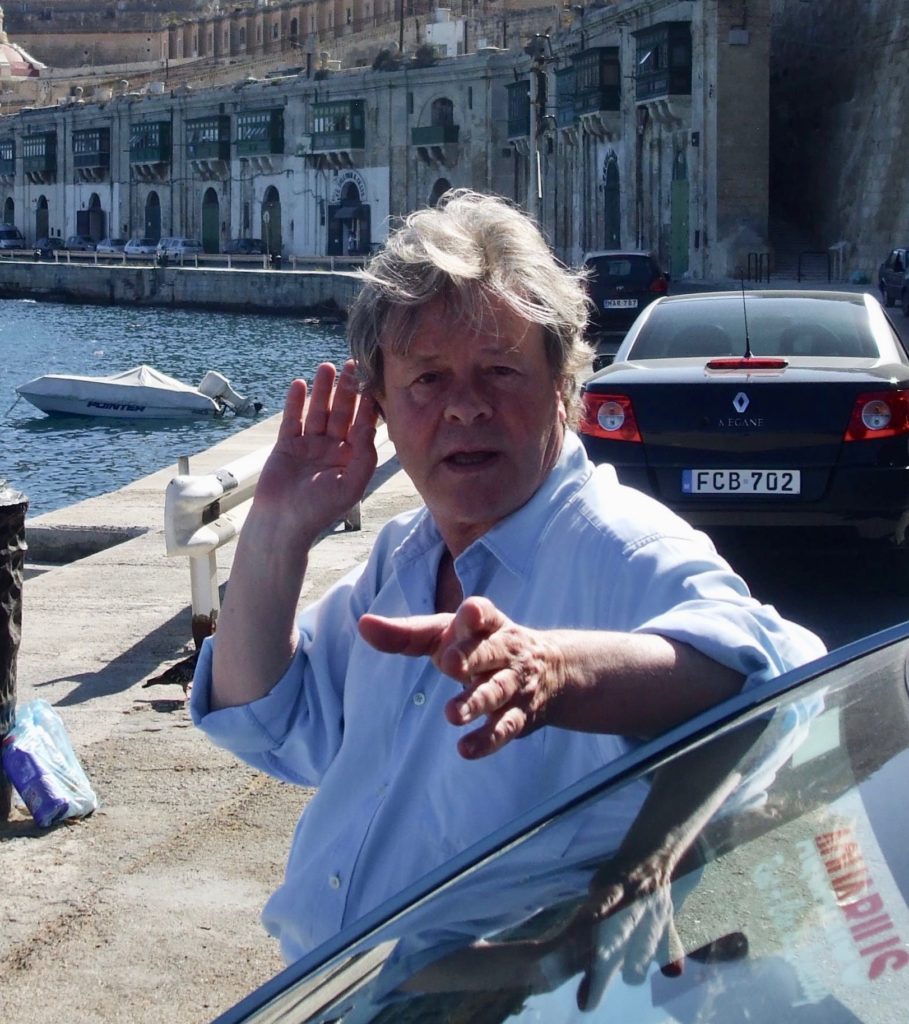
Wallflower time : the flat was full of people many of whom are now my friends, including a shy little boy called Zac, Tony’s son who was at the party with his grandmother, Tony’s mother also called Irene. It was all rather disconcerting. Tony was polite but distant and I wasn’t at all sure why I was there.
But then in through the door walked Friend Edward Russell-Walling who I’d not seen for literally years, who had returned to live in England trailing behind him his ex-wife Wendy destined too to become a close friend.
Edward in Malta many years later.
Edward knew no-one either. Wendy was the link. She knew Tony. How full of coincidence is the world, six degrees of separation, not so? I fell on him relieved to have a familiar face. We exchanged addresses and phone numbers and I left the party in Jonathan Altaras’ sports car – but that’s another story.
It was Edward that unknowingly facilitated our final get-together the following year, 1985.
III. ACTION : The BEGINNING (Blitzkrieg)
When I came to live in London in 1979, I had tentatively ‘’come out’’ but was not at all extrovert about this. So much has be written by gay men about coming to terms with their orientation, about their fear, the uncertainty, their anxieties that I won’t describe it all now. In South Africa it was illegal to be a practicing gay man. You could be imprisoned, fined, shamed, lose your job, lose your credibility and it was not something that was bandied about in any open way at all. In the army if you were caught inflagrenti dilicto you would be arrested and probably subjected to forced aversion therapy at the hands of some particularly nasty Psychiatrist at the military hospital in Pretoria. You could then also be dishonourably discharged. It was a terrifying prospect.
Of course working in the Arts helped. After all, ballet dancers, thespians and members of the artistic community were rather expected to be sensitive types, to be on the musical side, to be moffies. Or so the thinking went, so if you were quiet about who you were, you’d be left alone.
All this was left behind and I embraced a new freedoms in London where I knew no one, where anonymity is valued. At first, while re-training at LAMDA, I was too busy with my courses and learning to live in a new country; but by the end of my time there it would not be an exaggeration to say that there was an explosion of gay self-discovery – and no one to comment or pass any judgement whatsoever.
This freedom and the promiscuousness that went with it coincided with the rise of a new and terrifying pandemic called AIDS. In England the brakes were not applied on behaviour for a while; we were behind the United States on that as on so much.
For me the endless visits to clubs and pubs, to saunas and gyms – to a veritable “swimming pool library” of activity started to pall. I wanted proper company; I wanted permanence and a domestic existence. I wanted love and it dawned on me that I’d never find that kind of thing on a circuit of promiscuity. Apart from anything else such activities could kill you if you were not careful.
So prudence prevailed. Now there would be dates made; coffees and dinners and theatre outings with others to enjoy – I hoped, I imagined!
Not so easy though.
And then in March 1985 Friend Edward invited me to a flat warming in Kensington to celebrate his new address. There were many I knew there and who should turn up on the arm of Wendy Searle but Tony Peake. I thought Wendy was his wife or, at least partner but it was at that party that the scales fell from my eyes as they say and what had never been evident suddenly became so.
We talked and talked eyeing each other up and at the end he and Wendy, who was a close friend, dropped me off in Dolphin Square where promises were made to commit telephony and make a date.
A whole weekend went by before the phone eventually rang.
A date was made : The Ides of March 1985.
We have been together ever since. I care not how public I make this, for unlike men and women, there was no platform then from which to crow one’s love and one’s gratitude at finding someone so special and wonderful; no churches or receptions.
They all came many years later, when Tony Blair legislated for Civil Partnerships. We had been together by then for 21 years. The rings we exchanged were engraved with the proper date, the 15th March, 1985.
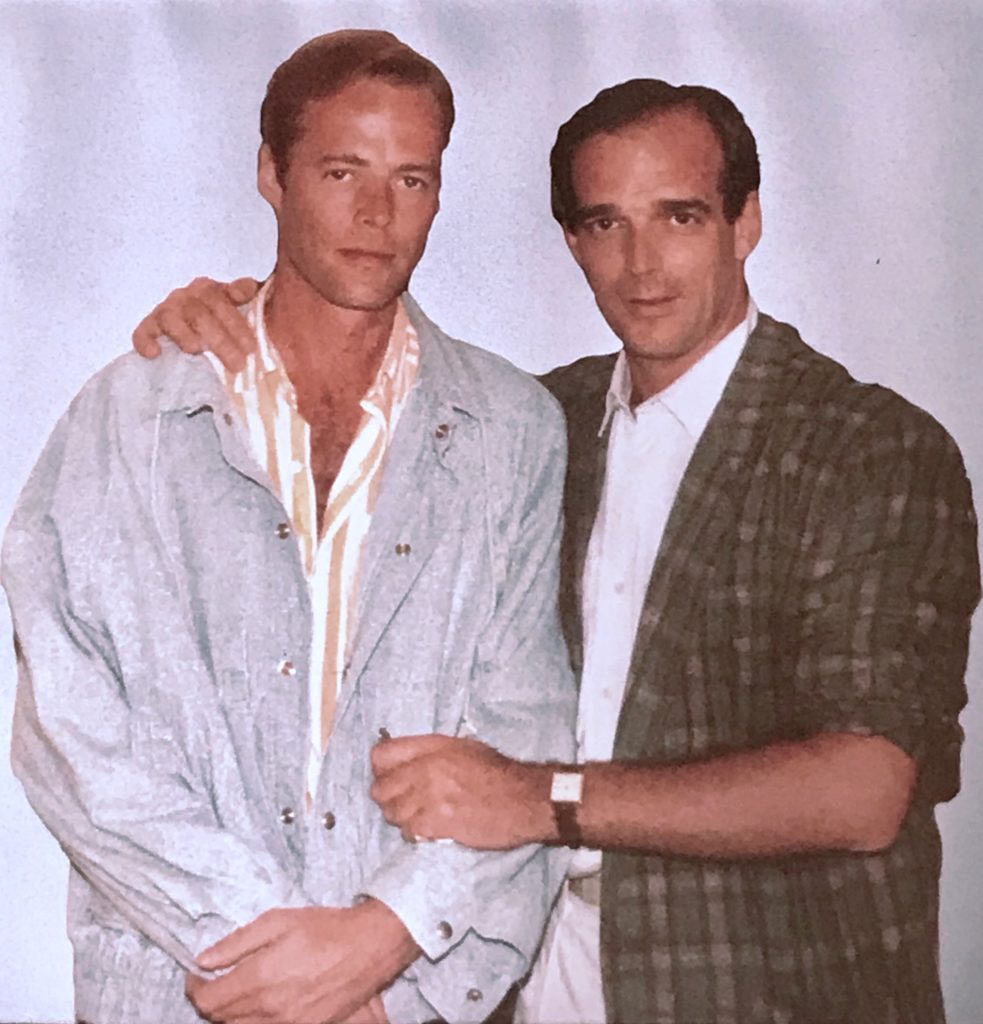
Cape Town 1986 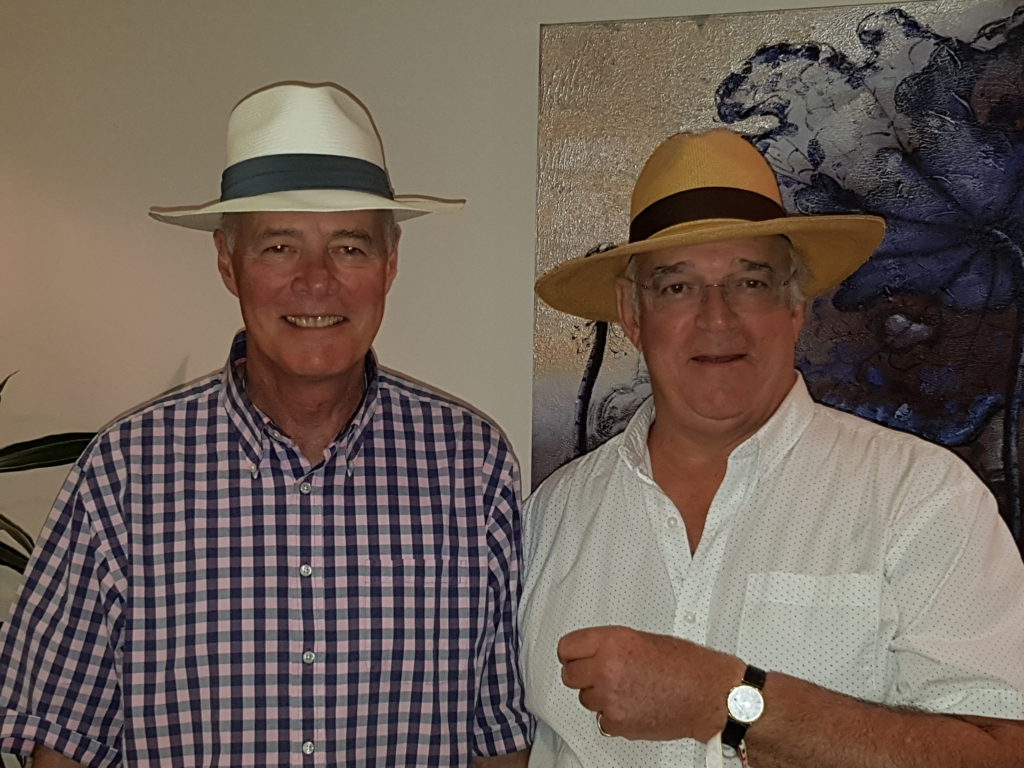
Quito, Ecuador 2019
